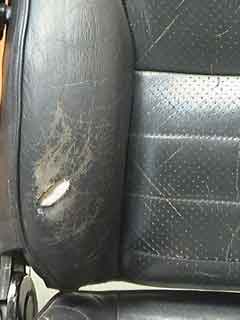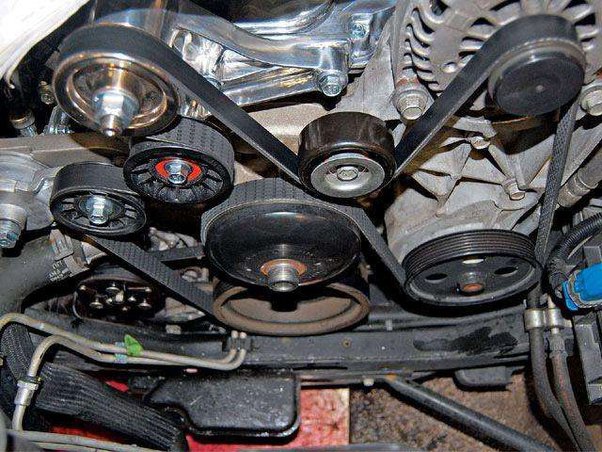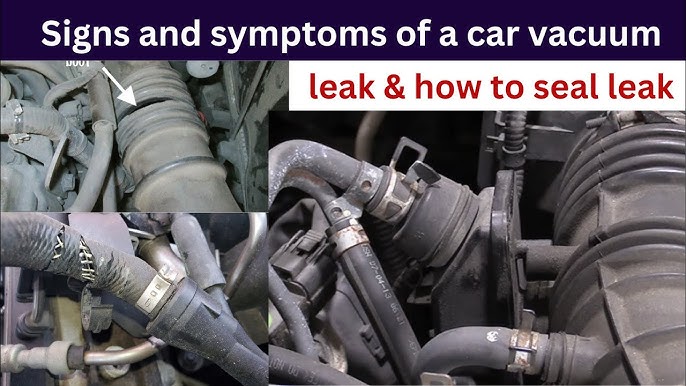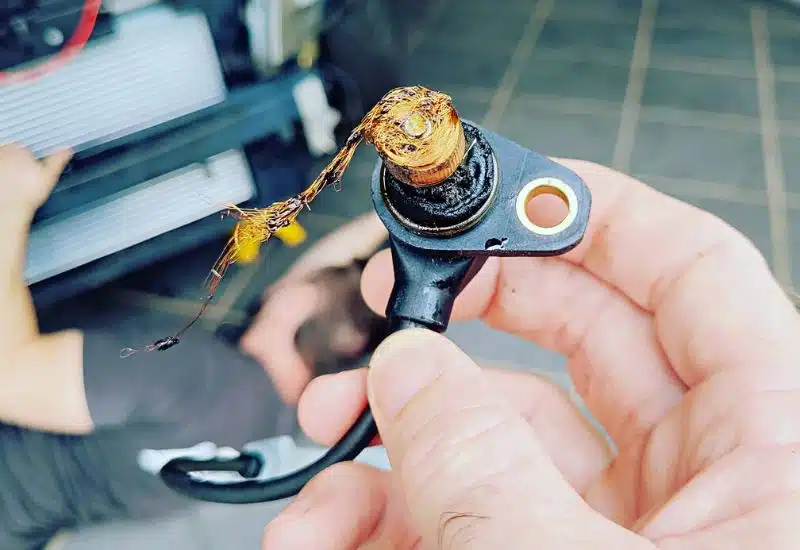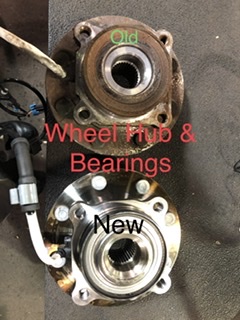Will a Bad Starter Still Crank
A bad starter typically will not crank the engine. It may make a clicking sound instead.
Car owners dreading the silence that comes with a turn of the key may be facing starter troubles. The starter is a crucial component in igniting the engine. Its malfunction often leads to no engine crank, which makes starting the vehicle impossible.
Spotting a faulty starter early can save drivers from the inconvenience of unexpected roadside issues. A healthy starter motor should spin the engine swiftly, leading to a smooth ignition. When it fails, the distinct clicking noise or a complete lack of sound indicates a problem. This initial diagnosis can be a lifeline for those with busy routines, allowing for preemptive measures before a tow becomes necessary. Understanding the signs of a bad starter is essential for timely repairs and uninterrupted driving experiences.
Symptoms Of A Failing Starter
A starter is crucial for getting your car’s engine running. Like all car parts, starters wear out and fail. Recognizing early signs of trouble can save a lot of hassle. Let’s look at symptoms that indicate a starter might be giving up.
Intermittent Engine Cranking
Starting a car should be smooth and consistent. When the starter begins to fail, this changes. You might find your engine cranks sometimes but not always. This intermittent cranking can seem random, making it tricky to diagnose. Here are signs to watch for:
- Car starts fine one moment, won’t start the next.
- Engine cranks slowly or weakly.
- Multiple attempts needed to get the engine running.
Grinding Noises During Ignition
A healthy starter motor is fairly quiet. Unusual noises are red flags. The sound of grinding during ignition is a clear sign. It means the gears that connect the starter to the engine might be worn. Ignoring these noises can cause more damage. Symptoms include:
- Loud metallic grinding or whirring sounds on startup.
- Alteration in the usual starting sound patterns.
- Unusual screeching indicates gears are not engaging correctly.

Credit: www.wikihow.com
How A Starter Works
Imagine pressing a button and bringing your car’s engine to life. That’s the magic of a starter system. Under the hood, complex parts work in harmony to kick-start your vehicle.
Components of a Starter System
Components Of A Starter System
Every starter system packs crucial components. Each part ensures your vehicle fires up smoothly. Let’s look at the pieces of this puzzle:
- Motor: The powerhouse that turns the engine’s gears.
- Solenoid: A relay that safely connects the motor to power.
- Drive Gear: Meshes with the engine to set it in motion.
- Battery: Supplies the zap needed for the kick.
The Role of the Solenoid
The Role Of The Solenoid
The solenoid acts as a bridge for electricity. When you turn the key, the solenoid springs into action.
- Ignition: Your turn of the key sends a signal.
- Activation: The solenoid energizes, forming a connection.
- Engagement: It pushes the drive gear into place with the engine.
The solenoid ensures smooth, safe starts. It’s key in protecting the starter motor from damage.
Can A Bad Starter Still Crank?
Will a bad starter still crank? This question often pops up among vehicle owners facing ignition troubles. A failing starter can behave unpredictably. Understanding if a poor starter can engage the engine—albeit weakly or inconsistently—clarifies troubleshooting steps for many drivers.
Partial Engagement
When a starter falters, it might not be an all-or-nothing scenario. Partial engagement is a typical symptom one might observe:
- The gear might engage partially.
- Noises might occur, like a grinding sound.
- The engine may crank slowly.
Frequent partial engagement can damage the engine flywheel over time. This issue requires immediate attention.
Electrical Issues And Effects
Electrical problems contribute to starter malfunctions:
- Weak battery may not power the starter fully.
- Corroded connections block electric flow.
- Starter solenoid could be failing.
These electrical issues affect the starter’s performance and may prevent proper engine cranking. They need careful diagnosis to prevent further damage.
Diagnosing Starter Problems
Is your car refusing to start? It’s essential to know if a bad starter can still crank your engine. A starter’s health is vital for your car’s ignition. Let’s dive into ways to diagnose starter issues.
The Jump Start Test
Assess your starter’s condition with a jump start test:
- Connect jumper cables to a working battery.
- Attach the other end to your car’s battery.
- Try to start your car.
If your car starts, the issue might be the battery, not the starter. If it doesn’t, the starter could be at fault.
Visual Inspection
Perform a visual check for clear signs of starter troubles:
- Look for loose connections.
- Inspect for visible damages.
- Check the starter’s mounting bolts.
A damaged starter may show wear or corrosion. Ensuring bolts are tight is also crucial for starter functionality.
Starter Replacement And Repair
An engine that won’t start can spell trouble, and the starter might be the culprit. Knowing the right time to replace or repair this critical component can save you from a future breakdown. Let’s delve into the specifics of when and how to tackle starter issues.
When To Consider Starter Replacement
Recognizing starter failure is vital for your vehicle’s wellbeing. Look for these signs:
- Loud clicking noise when turning the key
- Engine fails to crank despite a charged battery
- Grinding noise indicating a worn-out starter gear
- Intermittent issues with starting the vehicle
- Smoke or burning smell when starting the engine
Observe these symptoms? A quick inspection by a professional can confirm starter problems.
Diy Vs. Professional Repair
Contemplating a DIY repair or calling an expert? Review the comparison:
| DIY Repair | Professional Repair |
|---|---|
|
|
Starter replacement can be complex. It requires proper tools and experience. If unsure, seek a certified mechanic. They can ensure a safe and accurate repair.
Preventive Measures For Starter Longevity
A vehicle’s starter is crucial for engine ignition. Proper maintenance ensures a starter’s longevity. This section outlines key practices to extend starter life. Preventative measures can save time and money.
Regular Electrical System Checks
Regular inspections of the electrical system prevent starter issues. A professional should perform these checks. They ensure the starter receives the correct power. Strong connections and clean terminals are vital. Professionals detect and fix problems early. This extends the starter’s life.
- Check voltage levels: Too high or low affects the starter.
- Inspect wiring: Frayed wires lead to power disruptions.
- Clean terminals: Corrosion impedes current flow.
Maintaining Battery Health
The battery is the starter’s power source. A healthy battery contributes to starter longevity. Regular battery maintenance is essential.
| Task | Description | Frequency |
|---|---|---|
| Visual Inspection | Check for leaks or bulging | Monthly |
| Clean Terminals | Remove corrosion with a brush | Quarterly |
| Charge Check | Ensure full charge state | Bi-annually |
Test the battery: A load test reveals its condition. Replace old batteries promptly. Use a trickle charger to maintain charge levels.
Credit: www.quora.com
Frequently Asked Questions Of Will A Bad Starter Still Crank
Can A Failing Starter Still Crank An Engine?
A failing starter can sometimes crank an engine weakly. However, if the starter has completely failed, it might not crank at all. The cranking might be slower, indicating that the starter is wearing out and may require replacement soon.
What Signs Indicate A Bad Starter Motor?
Symptoms of a bad starter motor include a clicking noise when turning the key, intermittent engine cranking, or no response from the engine at all. Dimming lights when attempting to start can also indicate a starter issue.
How Does A Starter Motor Fail Gradually?
A starter motor may fail gradually, often beginning with sporadic issues like slow cranking or needing multiple key turns to start. Over time, the internal components like the solenoid or brushes wear out, leading to total failure.
Will A Bad Starter Drain Your Battery?
Yes, a bad starter can drain your battery. Attempting to start the car multiple times without the engine turning over can deplete the battery, as it requires a high amount of energy each time.
Conclusion
Troubleshooting a faulty starter can be perplexing, but the crux of the matter is clear. A bad starter might crank, yet fail to ignite your engine effectively. Recognizing the signs early can save time and avoid costly repairs. For reliable vehicle functionality, regular maintenance is key.
Drive with confidence, knowing your starter won’t let you down.

